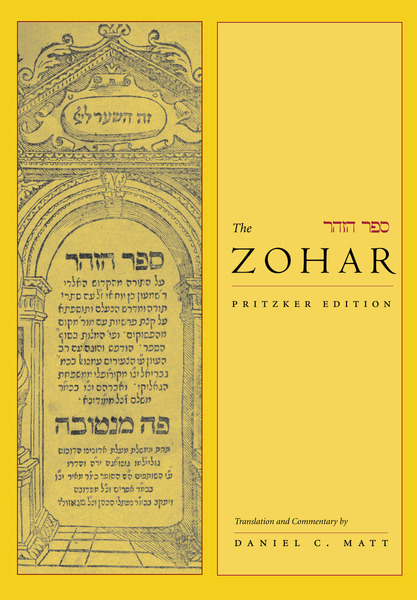
2003
472 pages.
$65.00
Hardcover ISBN: 9780804748681
Ebook ISBN: 9780804782135
Winner of the 2004 Koret Jewish Book Award, sponsored by The Koret Foundation.
Winner of the 2004 Choice Outstanding Academic Title Award.
Sefer ha-Zohar, "The Book of Radiance," has amazed and overwhelmed readers ever since it emerged mysteriously in medieval Spain toward the end of the thirteenth century. Written in a unique Aramaic, this masterpiece of Kabbalah exceeds the dimensions of a normal book; it is virtually a body of literature, comprising over twenty discrete sections. The bulk of the Zohar consists of a running commentary on the Torah, from Genesis through Deuteronomy. This translation begins and focuses here in what are projected to be ten volumes. Two subsequent volumes will cover other, shorter sections.
The Zohar's commentary is composed in the form of a mystical novel. The hero is Rabbi Shim'on son of Yohai, a saintly disciple of Rabbi Akiva who lived in the second century in the land of Israel. In the Zohar, Rabbi Shim'on and his companions wander through the hills of Galilee, discovering and sharing secrets of Torah.
On one level, biblical figures such as Abraham and Sarah are the main characters, and the mystical companions interpret their words, actions, and personalities. On a deeper level, the text of the Bible is simply the starting point, a springboard for the imagination. For example, when God commands Abraham, Lekh lekha, Go forth... to the land that I will show you (Genesis 12:1), Rabbi El'azar ignores idiomatic usage and insists on reading the words more literally than they were intended, hyperliterally: Lekh lekha, Go to yourself! Search deep within to discover your true self.
At times, the companions themselves become the main characters, and we read about their dramatic mystical sessions with Rabbi Shim'on or their adventures on the road, for example, an encounter with a cantankerous old donkey driver who turns out to be a master of wisdom in disguise.
Ultimately, the plot of the Zohar focuses on the ten sefirot, the various stages of God's inner life, aspects of divine personality, both feminine and masculine. By penetrating the literal surface of the Torah, the mystical commentators transform the biblical narrative into a biography of God. The entire Torah is read as one continuous divine name, expressing divine being. Even a seemingly insignificant verse can reveal the inner dynamics of the sefirot—how God feels, responds and acts, how She and He (the divine feminine and masculine) relate intimately with each other and with the world.
About the author
Daniel Matt is widely thought to be the best translator of the Zohar into English. His works include Zohar, The Book of Enlightenment (Paulist Press, 1983)—a selection of Zohar passages presented in English—and The Essential Kabbalah: The Heart of Jewish Mysticism (Harper San Francisco, 1995). Dr. Matt has recently returned to the Graduate Theological Union in Berkeley, after a period of work in Jerusalem.
"This sensitive commentary and translation of the classic text of Kabbalah is of foundational importance for an understanding of "Jewish mysticism.'"
—Jewish Book World
"While translation may be an art, it can also be genuine scholarship of the highest order. . . . Restoring the Zohar to our comprehension, these volumes are a monumental contribution to the history of Jewish thought."
—Koret Jewish Book Award,
Philosophy and Thought, 2003-2004,
The Zohar: Pritzker Edition, Volumes I and II
"A powerfully poetic rendition of this spiritual masterpiece. . . . Matt's new Zohar is a classic already in its first two volumes. The edition alone, or the translation alone, or the commentary alone would be a major contribution. The whole is a work of art."
—Journal of the American Academy of Religion
"More than a translation, this projected twelve-volume Pritzker edition amounts to an encyclopedia of the Zohar and is set to become one of the single most important contributions to the topic in the English-speaking world."
—Times Literary Supplement